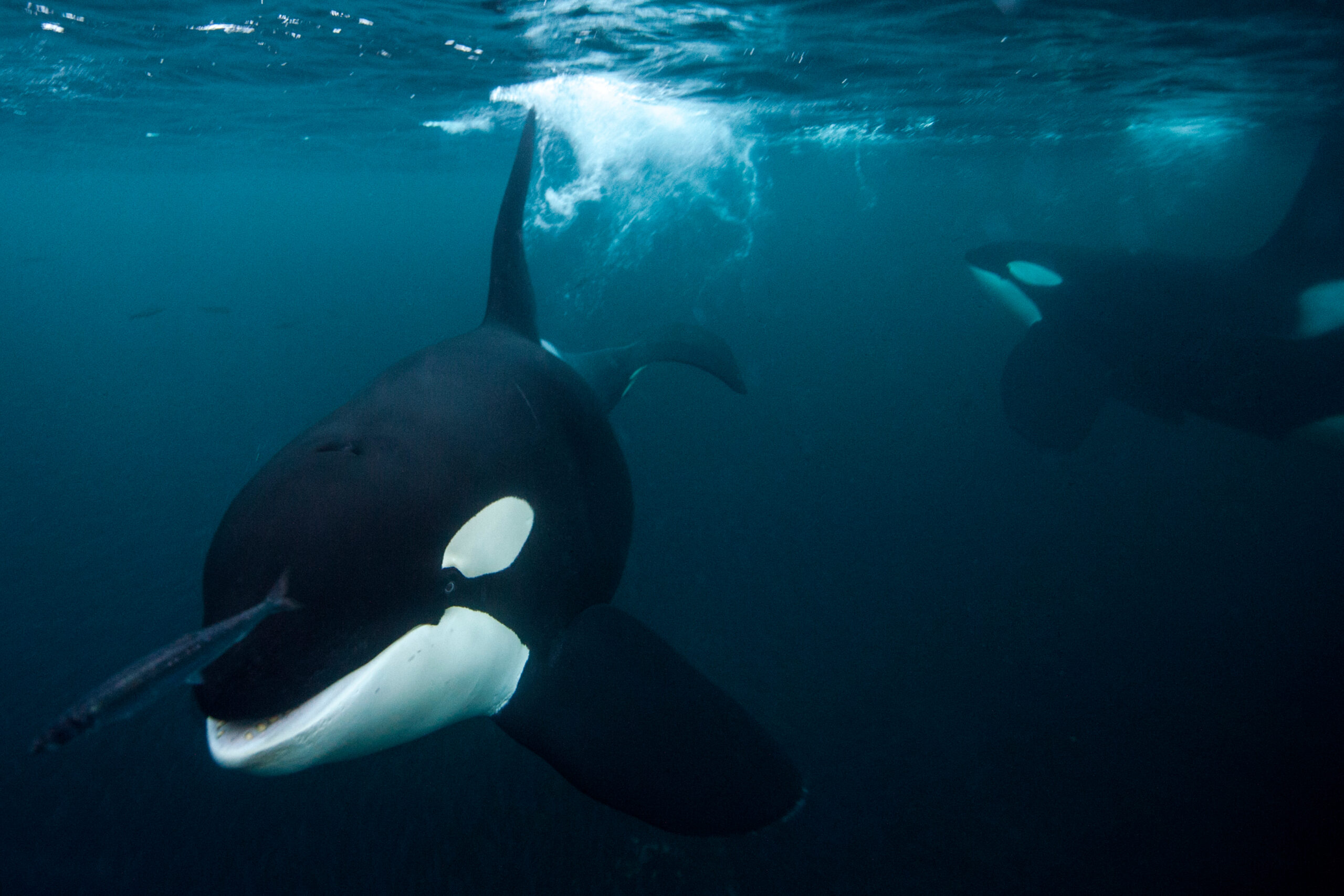If you’re a shark in Indian Ocean coastal waters off South Africa, you’re still on notice.
Port and Starboard, the now-famous pair of male orcas that hunt big fish including great whites, killed another shark near Mossel Bay last summer. And this time, researchers were standing by to watch it all unfold.
It’s the first time anyone has seen an orca kill and eat a great white alone. Starboard made the kill by itself, while Port swam at a distance. It also provided insights into the whales’ techniques for eviscerating the sharks and consuming their livers. And because killer whales can share hunting techniques relatively quickly, the solo hunt could be a keystone event in shark conservation.
Rhodes University’s Dr. Alison Towner was on hand for the event.
“The astonishing predation, off the coast of Mossel Bay, South Africa, represents unprecedented behavior underscoring the exceptional proficiency of the killer whale,” Towner said in a statement. “This sighting revealed evidence of solitary hunting by at least one killer whale, challenging conventional cooperative hunting behaviors known in the region.”
Towner led an international research team in a study. Their paper described the previously obscure behavior in grisly detail in the African Journal of Marine Science.
The distinct smell of shark liver
Two vessels, Wildcatt and Shark Warrior, first responded to reports of a killer whale sighting near Seal Island on June 18, 2023. Arriving at the location, researchers Esther Jacobs and Christiaan Stopforth observed gulls foraging in an oily surface slick, plus the “distinct smell” of fresh shark liver.
The boats shortly spotted the pair of whales and began following them. Keeping a tiny island between them, they swam about 100 meters apart for several minutes.
Then the team watched as a juvenile great white surfaced with Starboard in hot pursuit. A decisive hunt played out over the next two minutes.

The hunt in various stages, notably Starboard carrying the peach-colored shark’s liver in (h). Photos f and i show the ‘surface slick’ and foraging gulls. Photos: Christiaan Stopforth and Romana Romeiro/Sharks Studies Centre – Scientific Institute (SSCSI)
“Witnessing a white shark’s fin break the surface initially sparked excitement, but that turned to a somber realization as Starboard swiftly approached,” said Jacobs. “The moment Starboard rapidly preyed on my favorite shark species was both devastating and intensely powerful.”
The researchers attributed the kill in part to the shark’s young age. At just 2.5 meters, it did not present the challenge or threat of larger great whites Port and Starboard’s group have previously hunted by committee.
First solo kill
As the researchers point out, it’s the first confirmed instance of a lone orca hunting a white shark. Still, unknowns about the hunting techniques persist. An eviscerated juvenile shark carcass that washed up on the Mossel Bay beach a day after the predation left more questions than answers.

Photos: Christiaan Stopforth
The remains appeared about a kilometer away from the site of the kill. Even though the specimen was larger than the shark from Starboard’s confirmed kill, it showed a pectoral tear and a removed liver. Its flanks were also striated with stretch marks — a condition which led the team to note it possibly fell victim to a group hunt.
The two orcas wouldn’t be the only predators who favor certain organs or body parts from their quarry.
Bears, wolves, and harbor seals also sometimes eat selectively. And the liver of a juvenile great white like the one Starboard hunted could weigh between 5-24kg, the researchers pointed out — a nutrient-rich meal for an orca.
However, it’s a relatively sudden adaptation for Port and Starboard, and the activity has raised some alarms. As the researchers note, the whales appear to be influencing white shark behavior off the coast of South Africa at large.
What happens next is anybody’s guess.
“As smart, top predators, killer whales can rapidly learn new hunting techniques on their own or from others, so monitoring and understanding the behaviors used here and by other killer whales in South Africa is an important part of helping us understand more about these animals,” Dr. Towner said. “The observations…add more layers to the fascinating story of these two killer whales.”






